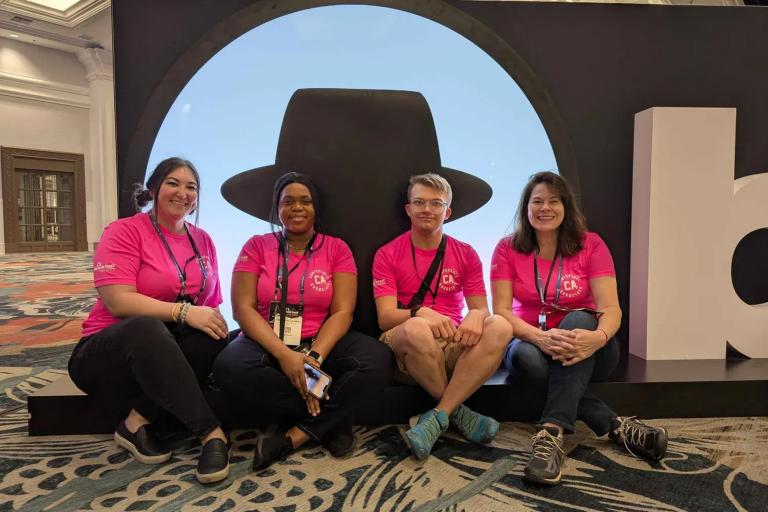Apprenticeship Bridging Gender Gap in Technology Industry
Apprenticeship Bridging Gender Gap in Technology Industry
Listen to this article
Kim Schjang is making sure people have internet access at the SC23 conference. After a successful event last year, the network engineer was invited back to help build and operate one of the world’s fastest volunteer-built networks as part of the Women in IT Networking program.
Schjang is the only person from UNLV to participate in the apprenticeship, which Women in IT Networking (WINS) created in 2015 to address the gender gap in information technology. She joins a team of female engineers to work alongside experts to set up the SCinet high-speed internet for this year’s supercomputing conference that is scheduled for Nov. 12-17 in Denver, Colo.
Schjang is taking what she learned from last year’s event to mentor her peers as they work together to plan and configure several network switches and wireless access points to handle internet traffic from thousands of attendees, researchers, and vendors from all over the world in a 500,000-square-foot space at the Colorado Convention Center.
“Now that I have a year of seasoned experience, I’m excited to have a bigger role in how things are built and where they go,” said Schjang, who works in the Office of Information Technology. “I’m designing part of the template for the switches that are customized to each space. Having one set of instructions to follow makes it easier for everyone to configure the equipment in a short time.”
Schjang is meeting her fellow network engineers at the convention venue in Denver, Colo. from Oct. 22 to Oct. 26 to prepare for the SC23 conference, programming the equipment beforehand. They’ll return to install the switches and wireless access points on Nov. 5 and provide support at the week-long event through Nov. 18.
With only 34 percent of the STEM workforce women, according to the American Association of University Women, gender gaps are higher in computer science and engineering. Schjang knows first hand that the opportunities WINS provides is helping to diversify the IT industry and motivating women to follow a career path in technology.
“Seeing strong women lead teams at the conference is inspiring,” said Schjang. “The breadth of knowledge they share beyond IT has been invaluable to my own growth as a network engineer and leader. Coming from my role models, that’s special to me.”
Schjang encourages more women to look into participating in the WINS program in the future.
“The experience goes beyond building a network for internet access at a conference,” said Schjang. “It helped me to build a community of women network engineers who I can count on for advice when I need it. I hope more people in the technology field from UNLV take advantage of this opportunity.”


